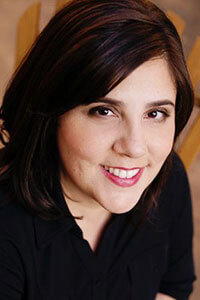
Mindfulness isn’t just about sitting quietly and meditating, but about showing compassion and kindness in everyday life. (Priscilla du Preez at Unsplash)
As pandemic-related stress has exploded, so has the number of users of one of the most popular ways of relieving it — meditation apps. In February 2019, the meditation app Calm had 40 million downloads; in December 2020, that figure had risen to 100 million. During that same period, the number of Calm’s paying users grew from 1 million to 4 million.
There’s been a similar increase in the number of companies that offer access to Calm and similar meditation apps like Headspace to their employees as a workplace benefit. According to a survey conducted by the Fidelity Investments and the National Business Group on Health, in 2018, 52 percent of employers offered access to meditation apps as a benefit, a number that is expected to have grown in the wake of the pandemic.
There could be a risk hiding in that trend, Jeff Wilson, professor and author of the book Mindful America, told Quartz. The danger “is the possibility that companies will rely on it as a way to anesthetize people to the stresses of work,” rather than addressing them, Wilson said. “If, after a 12-hour workday, someone meditates so they can ‘calm down, go to sleep, and get up tomorrow and do it again,’ then the benefits of the practice are beside the point,” he said.
Wilson’s comments prompted me to go back to a conversation Convene had with Leah Weiss, a founding faculty member of Stanford’s Compassion Cultivation Program and who has taught a course, “Leading With Mindfulness and Compassion,” at the Stanford Graduate School of Business for more than a decade. Weiss’s approach to combining mindfulness and meditation is anything but passive.

Leah Weiss
When we spoke in 2018, Weiss expressed concern about the ways in which mindfulness was being represented in the workplace. When they hear the word “mindfulness,” many people think of sitting quietly on a cushion doing nothing, “but a single-minded emphasis on sitting meditation is not traditionally the way that mindfulness has been practiced in the countries where it originated,” said Weiss, who became a serious student of Tibetan Buddhism when she was in her 20s. While spending time in Tibetan refugee communities, Weiss observed “people so clearly applying ideas of the practice of mindfulness, of compassion, during their work and in their parenting and in everything they were doing,” she said. The takeaway: Thinking of mindfulness as a mindset, instead of a narrow activity is much more helpful, she said.
Using meditation to anesthetize emotions is the opposite of what Weiss recommends — emotional suppression, in fact, is the No. 1 barrier between us and our purpose, Weiss wrote in her book, How We Work: Live Your Purpose, Reclaim Your Sanity, and Embrace the Daily Grind. “Thinking that feelings themselves are the problem, we try to get rid of them or ignore them altogether, not realizing how much of our mental resources are burned up in the effort,” Weiss writes. “Emotions may seem like a liability much of the time, especially at work, but in fact, our emotions are an asset.”
It’s possible to learn what emotions are and how they function, and to apply skills that allow you can regulate them and engage with them in a productive way — “not just stuff them and try to be professional,” Weiss said, “or be a mess.”
Weiss describes how mindful meditation works and how to practice it as part of your day in the story, “What is Mindful Meditation (And How Do You Do It)?” Weiss also is co-founder of Skylyte, a coaching company that specializes in using neuroscience and behavior change to address burnout.
Barbara Palmer is deputy editor of Convene.
